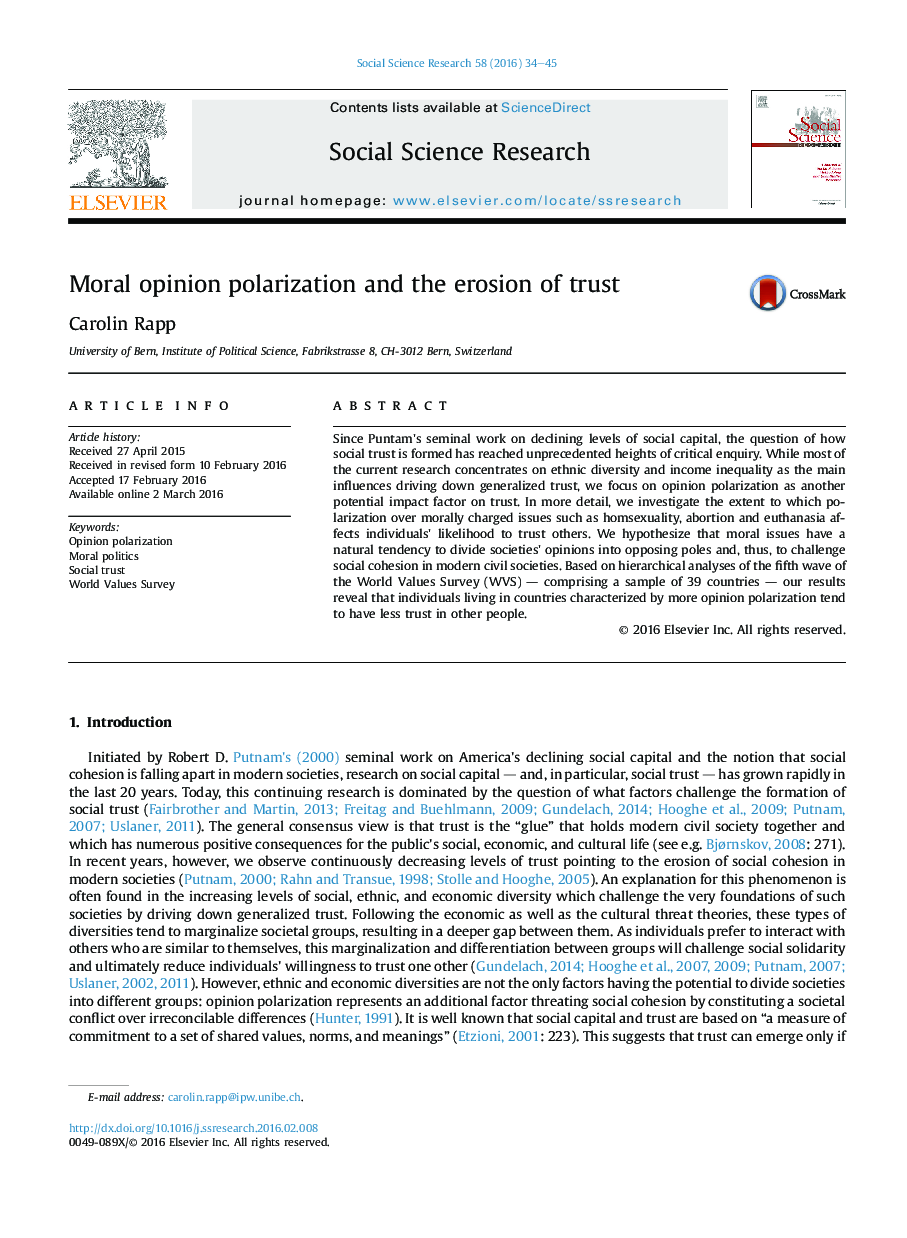| Article ID | Journal | Published Year | Pages | File Type |
|---|---|---|---|---|
| 955576 | Social Science Research | 2016 | 12 Pages |
•Cross-national comparison of 39 countries focusing on moral opinion polarization as threat to social cohesion.•A negative relationship between moral opinion polarization and social trust is proposed.•Three different measures of opinion polarization – dispersion, bimodality, and issue constraint – are introduced.•Different measures of moral opinion polarization relate significantly to lower levels of social trust.
Since Puntam's seminal work on declining levels of social capital, the question of how social trust is formed has reached unprecedented heights of critical enquiry. While most of the current research concentrates on ethnic diversity and income inequality as the main influences driving down generalized trust, we focus on opinion polarization as another potential impact factor on trust. In more detail, we investigate the extent to which polarization over morally charged issues such as homsexuality, abortion and euthanasia affects individuals' likelihood to trust others. We hypothesize that moral issues have a natural tendency to divide societies' opinions into opposing poles and, thus, to challenge social cohesion in modern civil societies. Based on hierarchical analyses of the fifth wave of the World Values Survey (WVS) — comprising a sample of 39 countries — our results reveal that individuals living in countries characterized by more opinion polarization tend to have less trust in other people.
